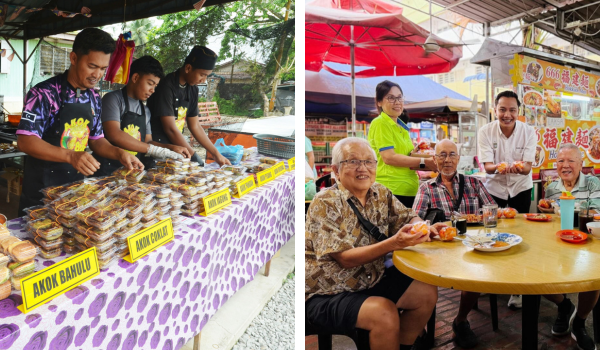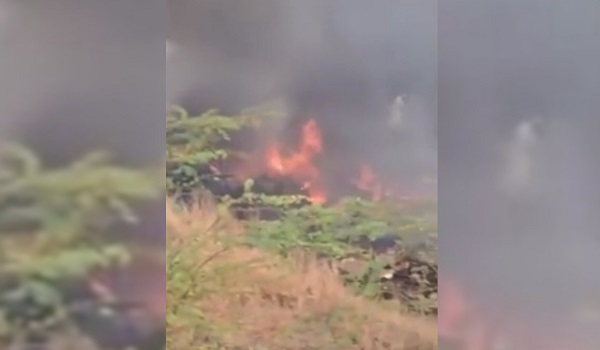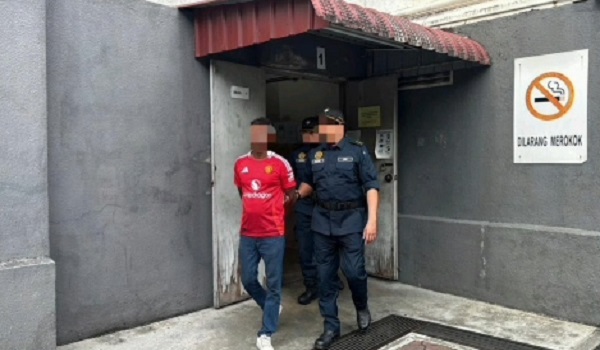SHANGHAI, Sept 9 – Deputy Prime Minister Datuk Seri Dr Ahmad Zahid Hamidi has called on global leaders to further enhance coordination mechanisms among nations to fight transnational crime more effectively.
He said a strong coordination mechanism between nations which involves fostering closer cooperation between government agencies, law enforcement, community organisations, and private sector partners is crucial in fighting such crimes.
Ahmad Zahid added that these crimes are often perpetrated by international syndicates, not isolated local organisations, thus an effective coordination would allows all countries to address security threats more efficiently and precisely.
“Addressing transnational crime requires more than national efforts…it demands strong international collaboration. Law enforcement agencies, governments, and international organisations must share intelligence, reinforce legal frameworks, and build capacity to effectively tackle these cross- border threats.
“Our response must be swift, coordinated, united and we cannot afford to work in isolation. We need to invest in cutting-edge technologies, enhance cross-border information sharing, and build strong partnerships to counter these criminal networks,” he said when delivering his keynote address at the Global Public Security Cooperation Forum Lianyungang (GPSCFL) 2024, in Lianyungang City, Jiangsu Province, China, today.
Ahmad Zahid also affirmed that Malaysia is committed to forging robust security partnerships worldwide, extending beyond continents and regions.
“We invite all nations to work with us toward mutually beneficial outcomes and enhance global security,” he said.
Ahmad Zahid also highlighted that Malaysia and China for example, have signed an agreement to enhance cooperation in preventing and combating transnational crime in June, this year.
He said the agreement is to strengthen collaboration between the two countries in the areas of terrorism-related intelligence, border controls, and combating telecommunications fraud, online gambling, drug trafficking, smuggling, and money laundering.
“It also includes training to boost law enforcement capacities in counter-terrorism, criminal investigation, and economic crimes,” he said.
Meanwhile, Ahmad Zahid said Malaysia shared the same concern and is equally committed with China on online and illegal gambling issues in which Malaysia has proposed the establishment of a Working Group for National Security Framework to strengthen legal frameworks, enhance law enforcement capabilities, and improve cross-border cooperation.
He said, the agreement with China to combat online gambling and illegal gambling has already shown results as the number of arrests of Chinese nationals in Malaysia has decreased from 1,225 in 2020 to 79 in 2023.
“This cooperation includes sharing intelligence, coordinating enforcement operations, and forming joint task forces to tackle cross-border gambling syndicates effectively.
Looking ahead Ahmad Zahid said, it is crucial for The International Criminal Police Organization (INTERPOL) to remain at the forefront of combating organised crime, particularly terrorism, thus INTERPOL should invest in modern policing and advanced equipment.
“Balancing robust security measures with respect for civil liberties is essential and implementing a global mechanism with high-definition facial recognition and advanced CCTV technology could drastically improve crime prevention efforts by reducing response times and increasing accuracy,” deputy prime minister said.
Highlighting Malaysia’s effort in public security, Ahmad Zahid explained that the government is currently enhancing its coordination systems with the Next Generation Emergency Services (NG999), which integrates advanced technologies like digital maps, geolocation, and Artificial Intelligent (AI) to improve information sharing and streamline emergency responses.
In addition he said, the government is also enhancing community policing across the nation under the Safe City Programme, which encourages citizen involvement through neighborhood watch initiatives and public safety campaigns as well as establishing a third line of community policing, similar to Malaysia’s Volunteer Department (RELA) and rural security communities (JPKK). -BERNAMA



